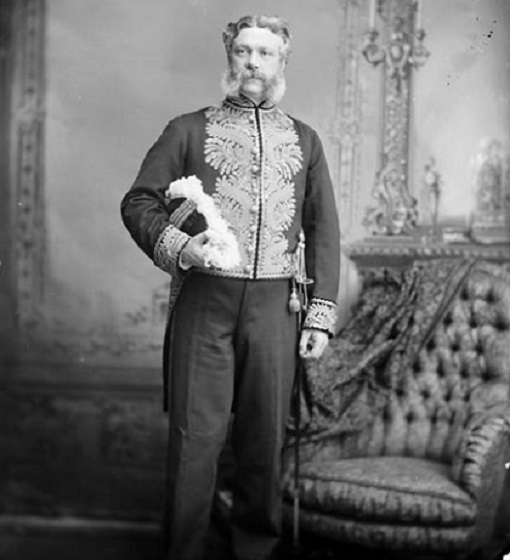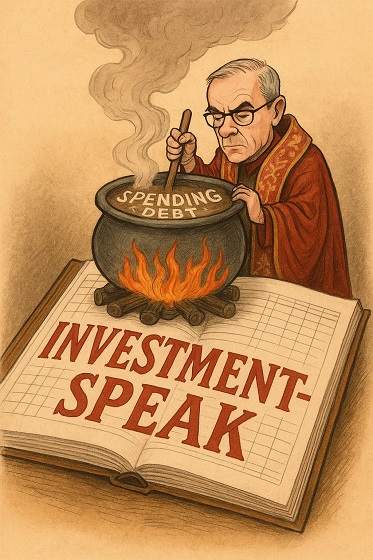Frontier Centre for Public Policy
Public opposition in Regina halts Dewdney Avenue renaming as Kamloops mass grave allegations unravel

From the Frontier Centre for Public Policy
By Lee Harding
Three years after taking down a statue of Canada’s first Prime Minister, Regina decides not to change street named after a far more controversial historical figure.
In a sign of the times, the same City of Regina that removed a statue of John A. MacDonald has just preserved the name of former Indian Commissioner Edgar Dewdney.
Dewdney, a Conservative MP under MacDonald, became Indian Commissioner of the North-West Territories in 1879 and was named Lieutenant Governor of the territory in 1881. He served in both positions until 1888. He was, briefly, the Minister of Indian Affairs before being appointed Lieutenant- Governor of British Columbia.
It was Dewdney who decided to move the territorial capital from Battleford to Wascana in 1882, later renamed Regina. He also moved the North-West Mounted Police headquarters to Regina from Fort Walsh: the fact that Dewdney had land nearby was likely not coincidental.
In 1883, Dewdney wrote to MacDonald to back the 1879 Davin Report in support of residential industrial schools, saying they “might be carried on with great advantage to the Indians.” The Davin Report, written by Nicholas Flood Davin, a journalist and politician, was commissioned by the Canadian government to provide recommendations on the establishment of residential schools for Indigenous children.
Despite this enormous contribution to Regina and Canadian history, Regina city councillors Andrew Stevens and Dan LeBlanc made a motion last May to remove Dewdney’s name from a street, park, and public pool.
The prospects seemed good. After all, the city of Regina decided to remove the statue of Sir John A. Macdonald from Victoria Park in 2021, primarily due to his role in the creation of Canada’s residential school system.
Dewdney was neither a father of Confederation nor a prime minister but is often viewed as a more controversial figure in Canadian history. He actively supported the residential school system, believing it to be more effective than day schools in breaking the influence of Indigenous families and communities. His policies were designed to assimilate Indigenous children by separating them from their cultural roots.
He refused to allocate certain lands promised to Indigenous communities under treaty agreements. He also withheld food rations, which were crucial during times of famine, using them as leverage to force Indigenous bands to relocate further north, where the government wanted them to settle. These actions contributed to widespread suffering and are part of his contentious legacy.
Yet on August 21, by a vote of seven to three, Regina city council refused to rename the 12-km Dewdney Avenue. Ward 10 councillor Jason Mancinelli said the change would cause too much hassle for businesses and people on the street.
Mayor Sandra Masters, who is seeking re-election, estimated that renaming Dewdney Avenue could cost around $350,000. She argued that this amount could be better spent on other priorities in the city.
“There are other things we could invest in that wouldn’t be as divisive,” she said.
So, what changed between 2021 and now?
In 2021, the city removed Macdonald’s statue following a brief, one-sided consultation shortly after the Kamloops Residential School mass grave allegations. At the time, ground-penetrating radar suggested potential burial sites, prompting widespread reactions across Canada.
Three years later, the investigation into the allegations, at a cost of $8 million, has yet to uncover any bodies. Some experts suggest that soil disturbances detected by the scans might have been caused by shallow trenches dug for a septic field back in 1924 rather than unmarked graves as initially alleged.
In contrast, Regina introduced the issue of renaming Dewdney Avenue in May and held presentations in June of this year, long after the Kamloops allegations started to unravel. The decision on the name change was delayed long enough for those opposed to speak up. Apparently, the suggested replacement name Tatanka – the Cree word for bison – did not seem to resonate with many of those opposed to the renaming.
The takeaway from these two outcomes is clear: rushed decisions can lead to unintended consequences, while a more thoughtful, measured approach ensures that choices are better informed and more beneficial to the community.
Lee Harding is a Research Fellow at the Frontier Centre for Public Policy
Business
Ford’s Liquor War Trades Economic Freedom For Political Theatre

From the Frontier Centre for Public Policy
By Conrad Eder
Consumer choice, not government coercion, should shape the market. Doug Ford’s alcohol crackdown trades symbolic outrage for sound policy and Ontarians will pay the price
Ontario politicians have developed an insatiable appetite for prohibition. Having already imposed a sweeping ban on all American alcohol, Premier Doug Ford has now threatened to remove Crown Royal, Smirnoff and potentially other brands from LCBO shelves. Such authoritarian impulses reflect a disturbing shift in our political culture—one that undermines economic prosperity and individual liberty.
After Diageo, the multinational behind brands like Crown Royal and Smirnoff, announced in August that it would close its Amherstburg, Ont., bottling facility, affecting 200 workers, the political response was swift. NDP MPP Lisa Gretzky urged the government to retaliate by pulling Crown Royal from LCBO shelves. Days later, Ford dramatically dumped a bottle of the whisky during a press conference, signalling he might follow through.
Now, the premier has escalated the threat, vowing to remove Smirnoff and potentially other Diageo products.
These gestures may make headlines, but they come at a cost. They undermine business confidence, discourage investment, and send the wrong message to employers. More fundamentally, they reflect a poor understanding of how free societies settle disputes and make decisions.
To understand what’s at stake, it helps to consider the two basic mechanisms available to democratic societies: the marketplace and the ballot box. At the ballot box, citizens vote once, and majority rule determines a single outcome. The marketplace, by contrast, allows people to vote continuously with their dollars. Individuals make countless choices reflecting their own values and priorities. You get what you choose—without overriding anyone else’s preference.
There’s a role for government in correcting market failures, where there’s fraud, monopoly power or public risk. But banning legal products simply because of political displeasure with a company’s decision is not market correction. It’s coercion.
Diageo’s decision to close a facility may be unfortunate, but it doesn’t involve deception, unfair dominance, or harm to the public. Bans aren’t rooted in sound principle; they’re political, plain and simple.
Some argue the government is justified in acting to protect Ontario jobs. But that line of thinking is short-sighted. If job protection alone warranted banning products, we’d resist every innovation or trade deal that disrupted the status quo. Sustainable job growth depends on encouraging investment and innovation, not shielding every position from change.
The appropriate response to plant closures is policy reform, not retaliation. Ontario should focus on creating an environment where businesses want to invest and grow. That means fostering a stable, competitive business climate with clear rules, reasonable taxes, and efficient regulation. Threatening companies with bans only creates uncertainty and drives investment elsewhere.
With Ontarians spending $740 million annually on Diageo products, removing them from store shelves would impose real economic costs. Consumers would face fewer choices, weaker competition, and higher prices. Restaurants and retailers would be forced to adjust. The LCBO, Ontario’s government-run liquor retailer, would lose sales.
This isn’t hypothetical. The province’s ban on American alcohol is already projected to block nearly $1 billion in annual sales, while doing nothing to benefit Ontario consumers. The LCBO is serving political interests, not the public.
Supporters of such bans often reveal their lack of confidence in public opinion. Rather than persuade others to boycott a product voluntarily, they demand that government enforce a blanket restriction.
There’s a better way. Consumer-led boycotts offer accountability without coercion. They allow individuals to act on their beliefs without forcing others to comply. And they tend to be more effective, as companies respond faster to falling sales than to political theatrics.
But the issue at hand goes beyond liquor. It’s about whether elected officials should impose a single set of preferences on everyone, or whether citizens are trusted to decide for themselves.
Each new ban makes the next one easier to justify. Over time, these interventions accumulate and normalize government interference in private choice. Unlike consumer preferences, which can shift quickly and reverse, government prohibitions often persist. The LCBO’s century-old structure is evidence of how long some policies endure, even when they no longer serve the public interest.
This isn’t a call to eliminate government’s role. But it is a call for principled governance, the kind that distinguishes between legitimate oversight and overreach rooted in symbolism or political frustration.
Ontario’s government would do better to focus on long-term prosperity. That means building an economy where investors feel welcome, businesses can grow, and consumers are free to choose.
Ontarians are perfectly capable of making their own choices about which products to buy and which companies to support. They don’t need politicians like Ford making those decisions for them.
Conrad Eder is a policy analyst at the Frontier Centre for Public Policy.
Frontier Centre for Public Policy
Canada Needs a Mandatory National Service

From the Frontier Centre for Public Policy
Retired lieutenant-general and graduate of the Royal Military College of Canada, argues Canada should establish a mandatory national service for all citizens under 30 to rebuild patriotism, civic trust, and national readiness.
Our country can’t defend itself, and citizens aren’t patriotic enough to step up. It’s time to change that.
I joined the military at the age of 18, right out of high school. My parents were working class and couldn’t afford to pay my university tuition, so although I was accepted to several good schools, I chose the Royal Military College of Canada, where I’d be considered part of the military and receive an annual salary. During the academic year, our job was to study. Then in the summer, we did military training. We graduated as second lieutenants—entry-level officers—and then did four years of military service.
I loved RMC. That’s where I learned about discipline, leadership and teamwork. After graduating I served in an armoured regiment in Quebec City, the 12e Régiment blindé du Canada. Eventually, I became a three-star general—a senior commander—and represented Canada in NATO. The military is where I met my wife, who served as a major in the Royal Canadian Air Force. Our experiences gave us a sense of purpose that’s we’ve passed down in our family: today, two of my four kids serve in the Canadian military.
But they’re in the minority. On the whole, the Angus Reid Institute finds that young Canadians are more reluctant to fight for our country than older Canadians, and pride in our armed forces has dropped significantly, from 79 per cent in 2019 to 54 per cent now. That decrease is coupled with a lack of trust in our public institutions. As of 2023, only a third of Canadians were confident in the federal parliament, and barely half reported confidence in the justice system and courts. Some might argue that Canadians are taking more pride in our country now than ever—U.S. President Trump’s tariff threats brought us together and started the “Elbows Up” boycotts—but even that has started to ebb. In any case, we shouldn’t need Trump or any outside influence to make us patriotic. Real patriotism doesn’t come through ideas and slogans, but through leadership and action. That’s why I believe that now, more than ever, Canada needs to create a mandatory national service for all Canadians under 30 years old.
The Canadian Armed Forces are facing a shortage of between 14,000 and 16,000 personnel. Meanwhile, our Arctic coastline is poised to become a site of global geopolitical competition as world powers eye its critical minerals, oil, gas and fresh water. Russian and Chinese interests in the region are expanding, and the ice is melting, opening us up to a looming scramble for northern waterways and seabed resources. If anyone wanted to come into the North and seize our natural wealth right now, there would be little we could do to stop them, short of a strongly worded diplomatic protest. We don’t have the necessary troops to defend ourselves—and the ones we do, we can barely transport up there.
Meanwhile, our country’s political, economic, and military weight has atrophied, and Canada’s international reputation is getting weaker. We’re no longer a strong player on the world stage. For example, in August, when a group of European leaders travelled to Washington, D.C. to discuss the war in Ukraine and support President Zelenskyy, Canada was not at the table—even though we are only a short flight away. We need to rebuild Canadians’ confidence before we can once again wield the weight of a strong middle power abroad. And we can do that by ensuring that Canadians love their country and are prepared to serve it.
The good news is that recent polls show strong interest in a mandatory national service program—especially if it’s broadened beyond the military. In an Angus Reid survey, 43 per cent of people supported the idea of mandatory military service, but about 70 per cent of people approved of a year-long mandatory service in the fields of public health support, environmental support, youth services and civil protection.
There’s much that young people can gain from serving their country. Early in my military career, I spent two years on exchange in France, where I commanded army conscripts. It was the late 1970s, and at the time, almost every 18-year-old male was required to serve in the French military. We received new appelés, or conscripts, right off the bus. They had long hair and lacked any prior military training or knowledge. But after 12 months of basic training, I could have taken my troop to war and won. Some of them, who had shown leadership potential, ended up becoming crew commanders in charge of an armoured vehicle.
These conscripts gained more than just the skills to shoot a rifle or drive a tank; they learned about their country and the importance of defending and serving it. Having a job to do gave them discipline, and they picked up small lessons like the importance of nutrition and staying fit. These basic but foundational habits can help set a person up for life-long health and success.
In France, a lot of the appelés hadn’t travelled much. Once they joined the military, they performed military manoeuvres across the country. When young people get to know their country and its people better, a sense of national pride emerges, along with an understanding of why their country is worth defending in the first place. In Canada, national service could have a similar effect. Imagine a young man or woman from Quebec is sent to serve in Alberta, or vice versa. How much could they learn from that experience?
Several NATO nations already have a mandatory national service system in place, including Lithuania, Estonia, Norway, Finland and Denmark. Lithuania’s system, which seeks volunteers and then uses a lottery to fill the remaining quota, is only for the military and applies to men ages 19 to 26. Estonia conscripts all men between 17 and 27, but other public service jobs are options for those with religious or moral reservations. Meanwhile, Norway’s highly selective conscription program selects several thousand of the most eligible men and women up to the age of 44, granting the nation 3.5 times more military personnel per capita than Canada.
If we’re going to have a national service program, we’ll need leaders in government to create a framework for it. In Canada, the federal government could designate several different streams of work, including defence, conservation, emergency and disaster response, health care, social services, digital infrastructure and youth development. When a young person turns 18, they would register for national service and suggest what stream they might prefer. If more people register than needed, a lottery system could determine who serves and in which stream. Those selected would enter training and take courses on civics and Canadian history, as well as stream-specific skills. They would then be deployed to a community, where they would serve for a year. Deferral beyond age 18 could be an option in some cases, as long as young people still entered service before a certain age, like 25 or 30.
Getting a system like this off the ground would require resources, training capacity and federal coordination, but it would be a worthwhile effort. Canada is faces severe wildfire seasons, an expanding cybercrime landscape and declining biodiversity. Our health-care system is anticipating a shortage of 117,600 nurses by 2030. Young people would emerge from service with a stronger sense of responsibility for their nation and the foundational skills necessary to help address the country’s biggest problems. And of course, those who choose to serve in the military could be added to the reserve, which would place Canada in a stronger position to defend itself in an increasingly aggressive world.
I envision national service as a paying job, which would make it more attractive to young people. And there could be other incentives for them to join—financial support for university, for instance, or guaranteed employment after service. Permanent residents could get a faster path to citizenship.
Citizenship in this incredible country comes with benefits, but also responsibilities. Once every young Canadian has worn a maple leaf on their shoulder, I think they’ll feel pride for their country—something that can unite us all and help Canada achieve its fullest potential.
Michel Maisonneuve is a retired lieutenant-general who served Canada for 45 years. He is a senior fellow at the Frontier Centre for Public Policy and author of In Defence of Canada: Reflections of a Patriot.
-

 Crime1 day ago
Crime1 day agoCanada Seizes 4,300 Litres of Chinese Drug Precursors Amid Trump’s Tariff Pressure Over Fentanyl Flows
-

 Alberta19 hours ago
Alberta19 hours agoFrom Underdog to Top Broodmare
-

 Alberta1 day ago
Alberta1 day agoHow one major media torqued its coverage – in the take no prisoners words of a former Alberta premier
-

 Bruce Dowbiggin2 days ago
Bruce Dowbiggin2 days agoGet Ready: Your House May Not Be Yours Much Longer
-

 Alberta1 day ago
Alberta1 day agoProvince orders School Boards to gather data on class sizes and complexity by Nov 24
-

 Business2 days ago
Business2 days agoCanada’s attack on religious charities makes no fiscal sense
-

 Business2 days ago
Business2 days agoWhen Words Cook the Books: The Politics of ‘Investment-Speak’
-

 Opinion1 day ago
Opinion1 day agoBill Gates Shakes Up the Climate Discussion



